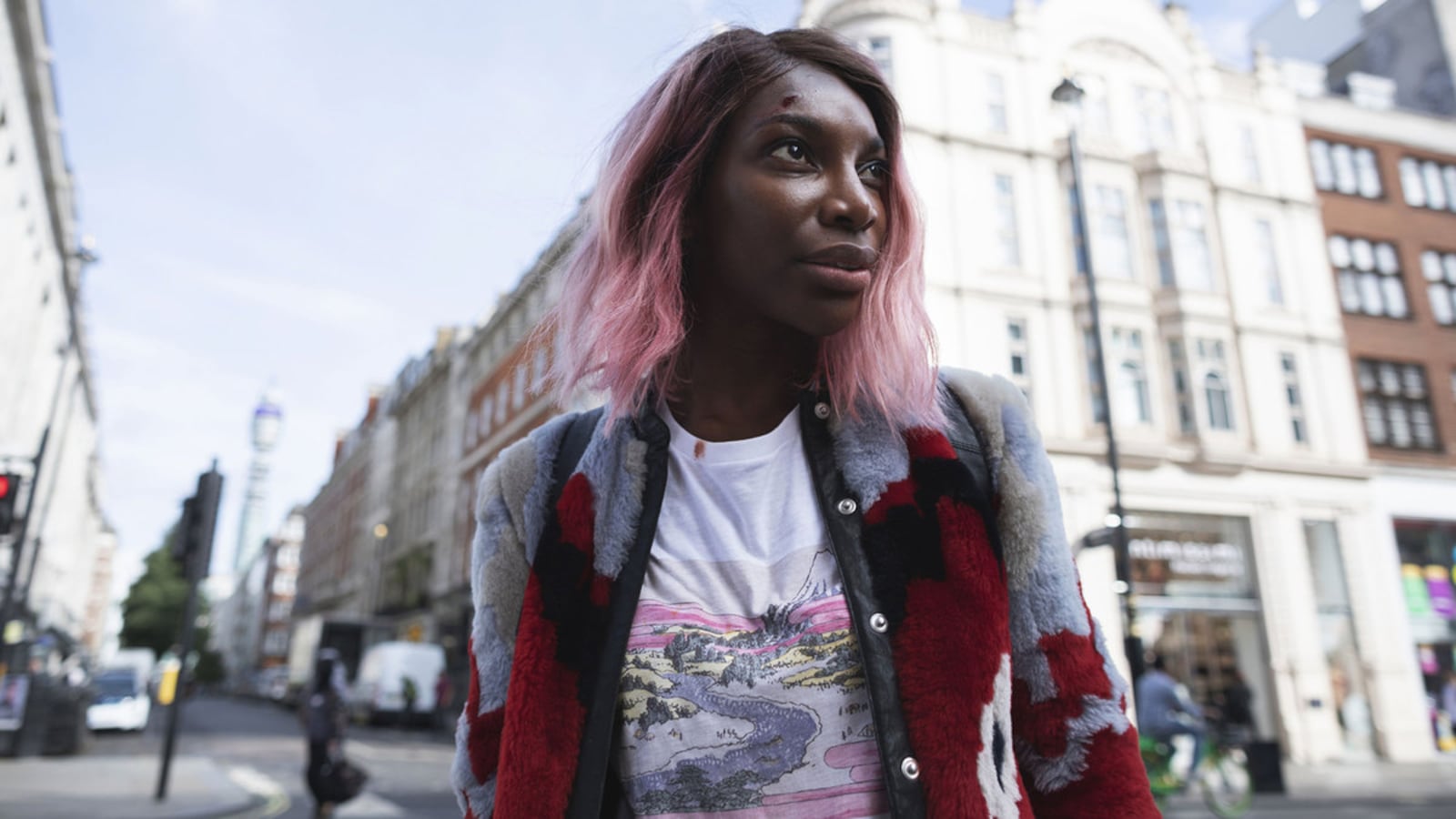It seems fitting that I May Destroy You never quite finds a steady rhythm. The highly anticipated HBO series is a bracing, intimate portrayal of one woman’s struggle to remember and then process what, exactly, happened to her one night when a man spiked her drink at a bar. Its central character, Arabella, has only one memory—the image of a man hovering over her in a bathroom stall that occasionally violates her consciousness, playing over and over in her mind as her ears ring. For most of this series, Arabella cannot find her usual rhythm—and so neither can we.
With I May Destroy You, creator Michaela Coel, the multi-hyphenate who broke out with her British sitcom Chewing Gum in 2015, confirms that she is both a star writer and actress. Two years ago Coel revealed that she had been sexually assaulted while making her old series—and now, as Arabella, she plays a fellow creative processing a horrific trauma.
Arabella is a celebrity to a certain millennial set; she came up as a voice-y writer on the internet and self-published her first book. When we meet her, however, she’s banging her head against a wall (metaphorically) as she attempts to draft a follow-up novel for the publishers who have now opened their doors to her. After her assault, she dives deeper into social media, which provides far more validating interactions than her impatient publishers but also brings its own destructive side effects.
Arabella’s mental and emotional states tend to fluctuate wildly, carrying the series with them; with a less capable actor at its center, I May Destroy You would feel aimless. At times, it can feel a little overstuffed. But Coel’s performance is both complex and utterly convincing, providing a reliable gravitational center. The tone shifts with her character’s psyche, articulating wordlessly, at times, how volatile the world can feel when someone is still raw with trauma. The series is not exactly a drama or a comedy, and it’s definitely not a “dramedy.” What it is, however, is frank—sometimes excruciatingly so, and sometimes hilariously so.
But it’s not just Arabella; her friends Terry (Weruche Opia) and Kwame (Paapa Essiedu) each navigate questionable experiences of their own. As these three journeys braid together, I May Destroy You attempts to wrap its arms around sexual assault in all its contexts—to express how these experiences can irreversibly shift one’s relationships with other people, with their environment, with their lives, and with themselves.
But it would be reductive to say that I May Destroy You is solely about sexual assault. The series frequently raises questions about consent, but its primary interest seems to lie in identity formation—the ways in which we see ourselves, and how our experiences can shape that. The two become inextricably intertwined, particularly after Arabella’s friend Kwame survives his own sexual assault. As Arabella and Kwame each realize late in the series, our self-perceptions and vulnerabilities shape how we interact with other people—and, at times, can lead us to harm and violate others without even realizing it.
Both Essiedu and Opia imbue their roles with impressive nuance and specificity. As Kwame, Essiedu brings a casual charisma that, as we gradually find out, can belie his character’s fragility. Opia, meanwhile, plays Terry with a refreshing dash of feistiness. I May Destroy You’s funniest moments come when the three are together, playing around and teasing one another with an ease that can make the whole production seem effortless.
But the show’s greatest triumph is how thoroughly and intuitively it expresses the difficult themes at its center. Sometimes it’s sad; sometimes it’s gut-wrenching; sometimes it’s improbably funny. What remains consistent is that through it all, it’s impossible to look away.






